Episodes

Friday Nov 22, 2024
Friday Nov 22, 2024
In this final episode, we speak to Professor Rosemary Auchmuty about how Elsy Borders’ remarkable case against her building society in the 1930s not only led to changes in law, but was also part of a bigger story about women, property, and justice.
Music credit: Goldfinch: Flight to the North, Axletree, Free Music Archive, CC BY 4.0
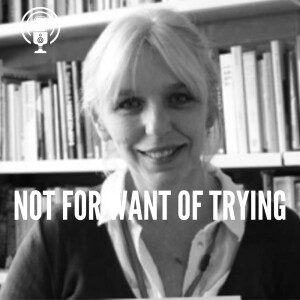
Friday Nov 15, 2024
Friday Nov 15, 2024
Virginia Woolf’s A Room of One’s Own is a foundation stone of 20th century literary feminism, but its relevance to feminist law reform is often overlooked. In this episode, we speak to Dr Madeleine Davies about the contemporary impact of Virginia Woolf’s work and the ongoing power of her succinct plea for a room of one’s own and five hundred a year.
Music credit: Goldfinch: Flight to the North, Axletree, Free Music Archive, CC BY 4.0
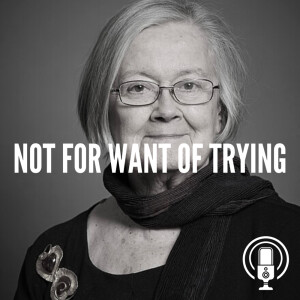
Friday Nov 08, 2024
Friday Nov 08, 2024
In this episode, we speak to Lady Hale – former President of the UK Supreme Court – about the Guardianship of Infants Act 1925. We discuss how the issue of equal guardianship over children was of substantial importance to feminist campaigners of the 1920s, and why we should still be talking about this today.
Music credit: Goldfinch: Flight to the North, Axletree, Free Music Archive, CC BY 4.0
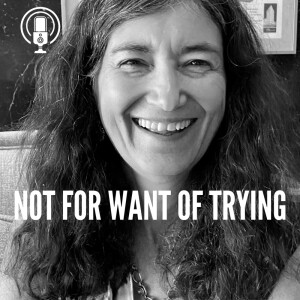
Friday Nov 01, 2024
Friday Nov 01, 2024
In the interwar period and beyond, many women were fired from their jobs as teachers, civil servants, and clerical and post office workers, simply because they were married. In this episode, we speak to Dr Harriet Samuels about the marriage bar, and how the history of married women's unemployment is an often overlooked, yet vital part of the story of women's fight for equality.
Music credit: Goldfinch: Flight to the North, Axletree, Free Music Archive, CC BY 4.0
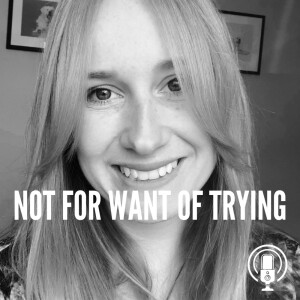
Friday Oct 25, 2024
Friday Oct 25, 2024
By 1928, equal franchise had been won. But for feminists of the day, this was only the beginning. In this episode, Professor Sharon Thompson discusses why the women's movement in the 1920s and 30s laid the foundations for later feminist fights, and why so much of this activity has been overlooked.
Music credit: Goldfinch: Flight to the North, Axletree, Free Music Archive, CC BY 4.0
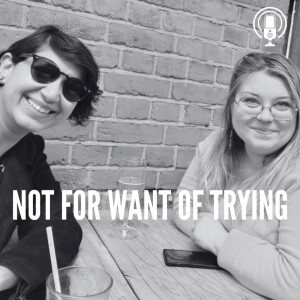
Friday Oct 18, 2024
Friday Oct 18, 2024
In 1929, both India and England and Wales enacted provisions seeking to protect young girls from underage marriage. How was it that both jurisdictions came to be talking about the age of consent at this time? In this episode, we talk to Dr Laura Lammasniemi and Dr Kanika Sharma about these important interwar reforms, and the role of British and Indian feminists in bringing them about.
Music credit: Goldfinch: Flight to the North, Axletree, Free Music Archive, CC BY 4.0
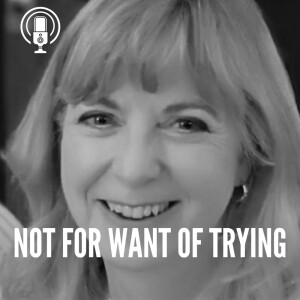
Friday Oct 11, 2024
Friday Oct 11, 2024
Until the 1930s, when a married woman committed a civil wrong or tort, she would not be liable in the eyes of the law. Instead, her husband would be sued for her wrongdoing. In this episode, we speak to Professor Joanne Conaghan about the role of tort law in regulating relationships between husbands and wives, and its ability to promote economic and political equality.
Music credit: Goldfinch: Flight to the North, Axletree, Free Music Archive, CC BY 4.0
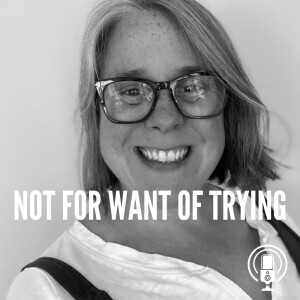
Friday Oct 04, 2024
Friday Oct 04, 2024
Before women could formally practise as lawyers, let alone sit as magistrates or judges, two women were appointed as judges in the Industrial Court. In this episode, Professor Erika Rackley discusses how this happened, as well as women’s representation on our courts and what - if anything - this has to do with Hans Christian Andersen’s 'Little Mermaid'.
Music credit: Goldfinch: Flight to the North, Axletree, Free Music Archive, CC BY 4.0
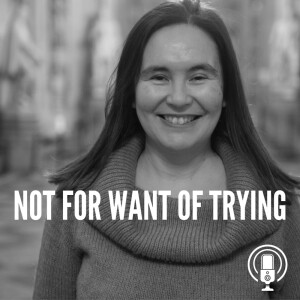
Friday Sep 27, 2024
Friday Sep 27, 2024
The 1918 General Election was the first time that women could be elected to parliament. But it would be another 10 years until women could vote on the same terms as men. In this episode we speak to Dr Mari Takayanagi, historian and senior archivist at the Parliamentary Archives, about the later years of the suffrage campaigns and the first women MPs.
Music credit: Goldfinch: Flight to the North, Axletree, Free Music Archive, CC BY 4.0
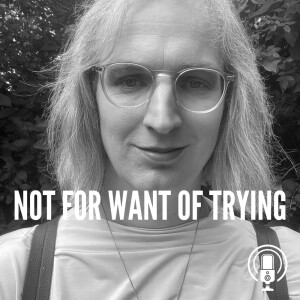
Friday Sep 20, 2024
Friday Sep 20, 2024
In 1920, women were finally able to sit alongside men in the jury box. But why had it taken so long for women to sit as members of a jury? And why is this such an important milestone in women’s history? In this episode, we speak to Dr Kay Crosby about the first women jurors in the English courts.
Music credit: Goldfinch: Flight to the North, Axletree, Free Music Archive, CC BY 4.0

Not for Want of Trying
What are the key legal landmarks for women? What role did women and feminists play in bringing them about? And what impact are they having on women today?
What do women’s toilets, botched building work, and Queen Victoria have in common? They’re all featured on our new podcast series – 'Not for Want of Trying'. A history podcast that uncovers key events in women’s legal history during the Interwar period.
Erika Rackley and Sharon Thompson talk to leading historians and lawyers to find out the answer to these questions and more!
Find out more by visiting our website: www.womenslegallandmarks.com





